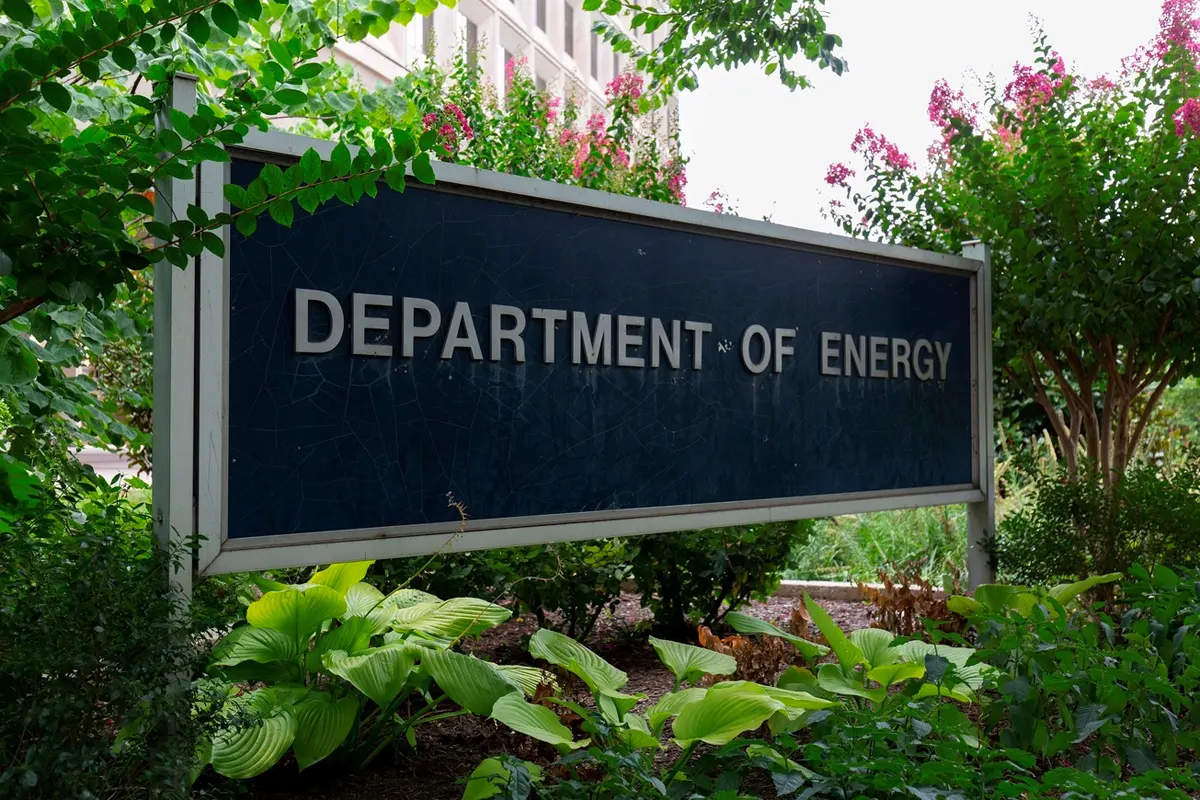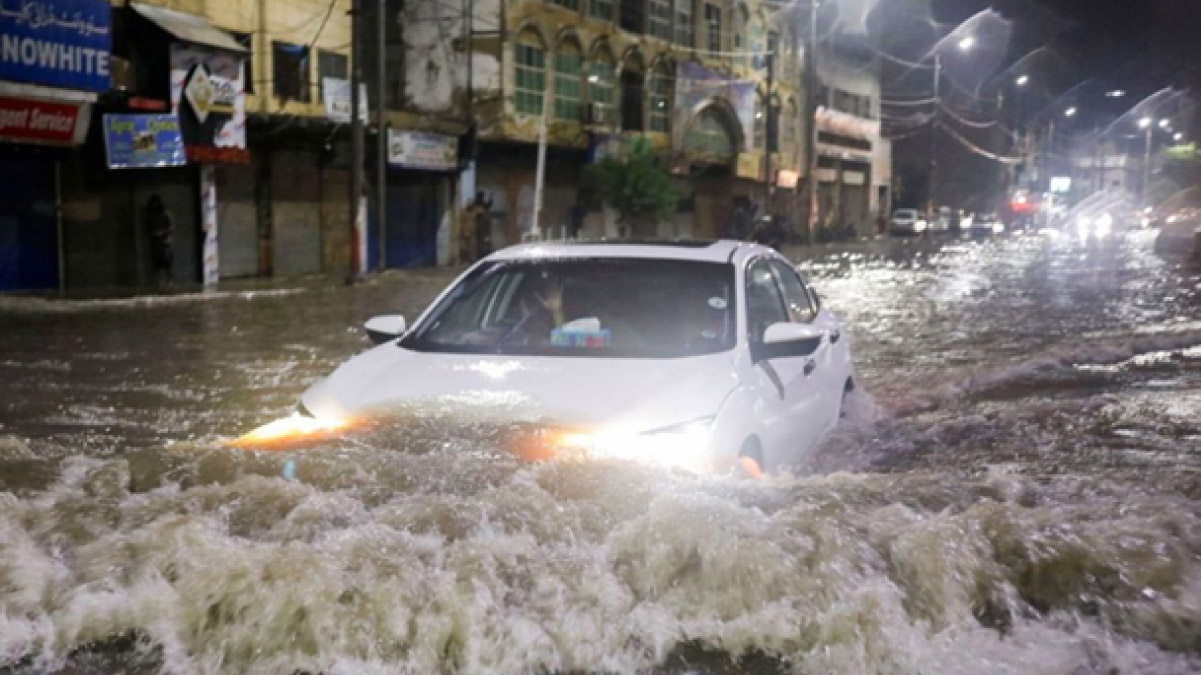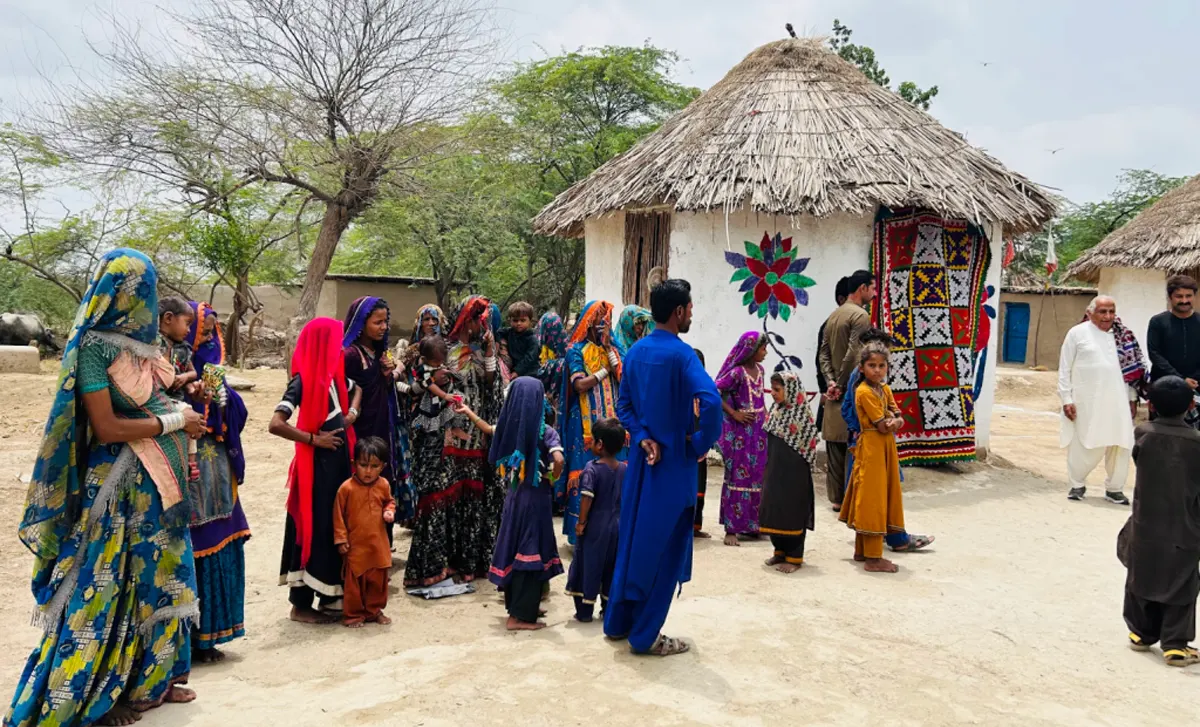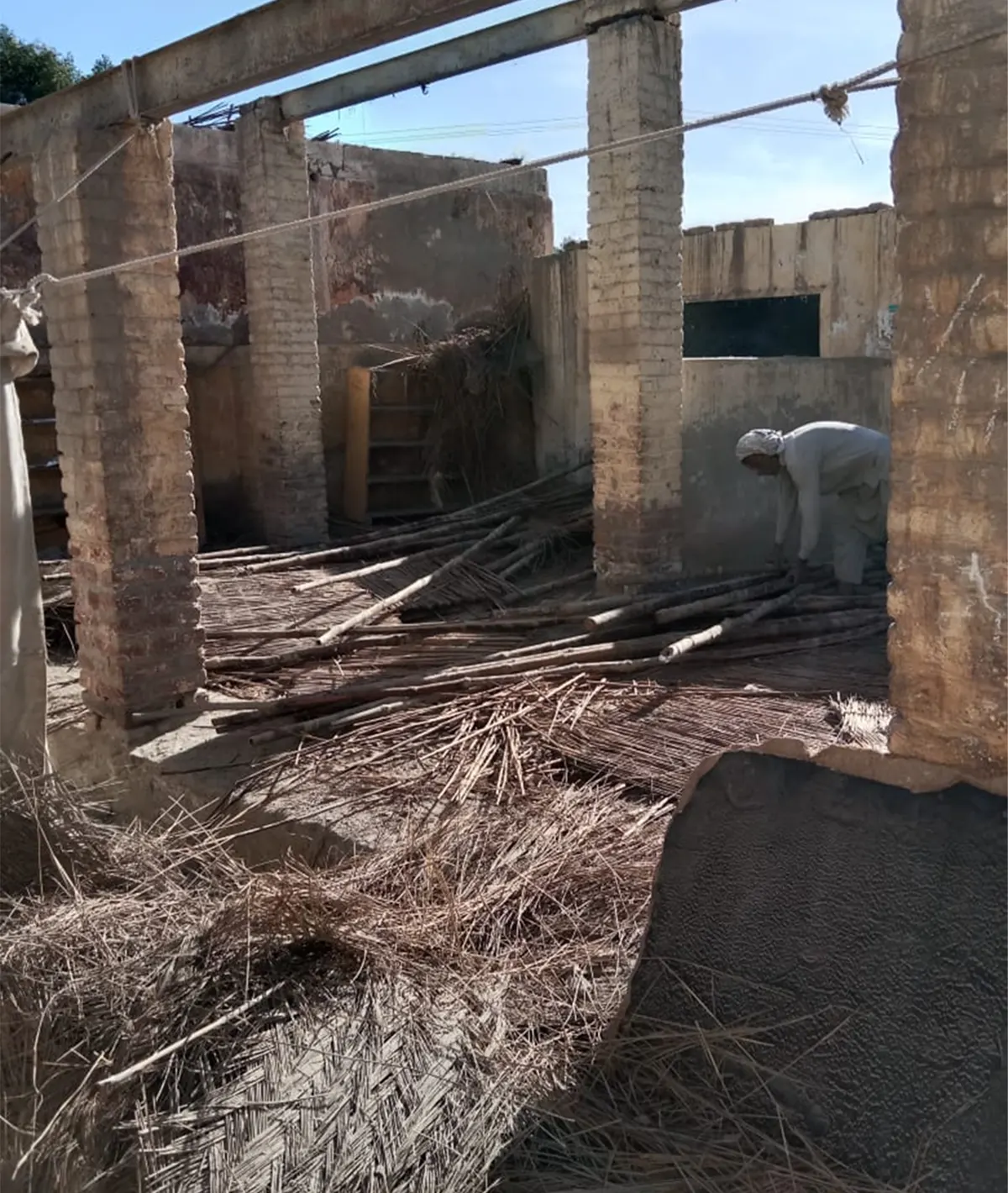Department of Energy Interview
The policy and the work of the American government’s Department of Energy (DOE) is vital for sustainable development in our country. Fortunately, sustainable and renewable energy development is a priority for the Biden administration, and they have given the Department hundreds of billions of dollars and power to seriously initiate the process of moving the American energy grid away from fossil fuels to clean energy sources. The production and use of energy worldwide accounts for over 70% of greenhouse emissions, and as the largest industrial economy in the world the US DOE’s policies could be pivotal to reversing this trend. They call themselves the “solutions agency” and have bipartisan support to invigorate the US economy and create a cleaner environment.
This summer, I had the pleasure of interviewing a senior member of the DOE team in Washington D.C. who prefers to remain anonymous, to find out more about how the DOE is approaching the monumental task of shaping a better future. For the purpose of this interview, I will refer to my interviewee as DOE Expert.
AZ (Ammad): What does sustainable development mean to you?
DOE Expert: The traditional purpose of sustainable development is to make sure that economic growth should not come at the cost of environmental action. We want to effectively manage the transition of the economy from dirty industries, such as fossil fuel producers, to clean ones. Making sure that communities and workers have opportunities in these new sustainable industries is the priority.
Fossil fuel corporations have basically created legacy industries, where many communities are so dependent on them that they are afraid to let go. We cannot shut down factories, losing jobs, and damaging communities built around these industries, without proper alternatives for these people to turn to. To me there is lots of nuance in sustainable development. We are trying to help the environment, people, and economy so it is always going to be a dynamic concept.
AZ: How did you develop an interest in the field of sustainable development?
DOE Expert: I was always environmentally oriented from a pretty young age. I’m a native Californian and seeing the consistent water crisis plaguing my state originally got me interested in climate issues. I began to really look into the topic, and a lot of my early science fair projects back then surrounded water treatment, and other environmental issues.
What really sparked my interest was Al Gore’s documentary, An Inconvenient Truth, coming out. It really brought the severity of climate issues to the public eye, and influenced my decision to work in the field of sustainable development.
AZ: As an employee for the DOE what do you do in your own words?
DOE Expert: I help figure out where and how the DOE will implement their sizable funds into programs working to combat the climate crisis in fields such as clean energy. Two major bipartisan bills have been passed recently, including the IRA, which has allowed considerable funds to go to the DOE to help support the clean energy transition. The IRA alone gave the DOE $400bn of loan authority to fund clean energy projects, and give tax credits for producing clean energy and buying electric vehicles.
There are so many ways and different projects to support when it comes to implementing renewable energy infrastructure, ranging from those focused on electrifying all appliances to those worrying about sequestering, and it is my job to decide to which project the money will go. I also have to work out how the supply chain for the materials needed in a project will work, and ensure that no hostile nation to the US will benefit in any way by a project.
AZ: What incentives do you use to convince people to become invested in the green transition?
DOE Expert: There are a lot of economic advantages for people involved in the green transition, which makes it beneficial for people to join in. Clean energy policy means that there will be many new jobs in new industries, as well as fiscal incentives for making new clean energy projects or reducing your carbon footprint, by doing things like buying an electric car. We are creating a more healthy and clean economy, not everything is about fighting climate change, these benefits are incidental. These motives mean that a lot of new clean energy projects are beginning to open up across the US, especially in the Midwest and southwest. There is a competition between the different states to access these benefits.
AZ: What have you learned about how politicians view climate change, and their opinions on the technological solutions?
DOE Expert: Interestingly from what I have seen, regardless of party, everyone is invested at this point. There is an understanding that there are good economic reasons for these clean energy projects to happen in the US, generating jobs is a major one. The bipartisan bills have reflected a clear consensus that infrastructure across the country needs to be upgraded, mostly major infrastructure is around 50 years old. Newer roads, and bridges, as well as making a clear effort to connect many rural communities to the 21st century through broadband internet is a must, as these people are mostly unable to access the wealth of knowledge on the internet. Renewable projects are going to be a key part of this upgrade of outdated infrastructure.
AZ: What are some of the major issues and problems with the government’s approach you have seen in your role?
DOE Expert: I think that there is a lot of leeway for companies to exploit federal regulations, and legal details are not completely spelled out, leaving a bit of ambiguity in laws geared toward this green transition. Most of my job involves delving into tiny details, since, for example, there are five different ways to interpret the same bill, which is the cause of so many major issues and lawsuits. A lot of pressure is put onto federal agencies to clarify these misinterpretations; which is why legal advisors are so important.
AZ: Has the current polarized political climate across the country affected the DOE’s ability to work on its important projects in clean energy?
DOE Expert: No, it hasn’t been much of a hindrance. The clean energy economy we are trying to build has proven to be more resistant to global shocks than other non-renewable sources of energy have been, such as how gas has been affected by the war in Ukraine. The biggest challenge is that the muscle to build things rapidly and at a large scale has been weakened in the US from lack of use, and it is hard to relearn and strengthen that muscle quickly. In order to successfully complete the green transition, the US has to enter the advanced manufacturing era to quickly overhaul old and polluting infrastructure. Yet, the country is still lacking the full capabilities to quickly become a modern manufacturing powerhouse.
Back during World War II, massive industries transformed overnight to become fully focused on the war time effort. The military equipment, the arms, the vehicles, and more were churned out at a rate that no one else could keep up with. Women were finally brought into the economy to help out with the wartime effort and ensure things went smoothly back in America. Yet, this skill to build at speed and scale has been severely weakened in America as time has gone on. We need to build that rapidly and effectively again if we are going to meet our climate goals, and we need a new method. Social issues are more at the forefront now than they were back then, so making sure that this new manufacturing era is inclusive and beneficial for all Americans is really important. Balancing all these different issues has made reinvigorating the American manufacturing industry very difficult. Yet, if we can do it we will be able to complete a major part of America’s green transition, but also create a multitude of new jobs and boost the American economy.
AZ: What are some crucial markers and expectations in sustainability that the department has set in order to aim for a more sustainable future?
DOE Expert: We are very optimistic, we are “the solutions agency.” The DOE has 17 national laboratories under its control to deploy a wealth of knowledge, harnessing our expertise, and channeling it into finding solutions for climate change. We only have one shot at this, but we can do it. The US has used its innovation and technology in the past to accomplish wonders, and we can do it again. At the DOE we have “Earth Shots” which are goals we want to achieve in a range of different sectors of the US power grid in regards to sustainability. For example, one of our big goals is to make green hydrogen a dollar-a-kilogram by 2030.
AZ: What advice do you have for me as a high-school student who wants to help in the green transition?
DOE Expert: Keep doing exactly what you’re doing now, stay curious and learn. See different perspectives about climate issues, it is really, really, important to be a well-informed advocate. If you want to make a difference, start by thinking about what goes on in your community, and how you can improve it and make it more sustainable, then grow from there.
Projects
Hello I’m Ammad Zuberi, I’m sure you’ve heard of the devastating
On my trip to Pakistan this summer, I had the amazing opportunity to go and survey the sustainable village project that I had raised funds for in 2022 after deadly floods dislocated 33 million people in Pakistan.
On my trip to Pakistan this summer, I had the amazing opportunity to go and survey the sustainable village project that I had raised funds for in 2022 after deadly floods dislocated 33 million people in Pakistan.




